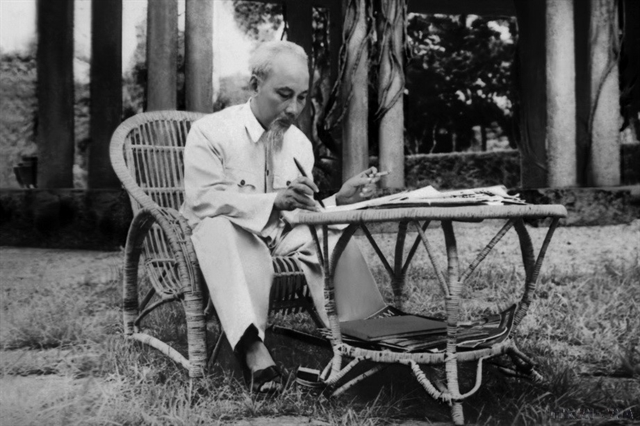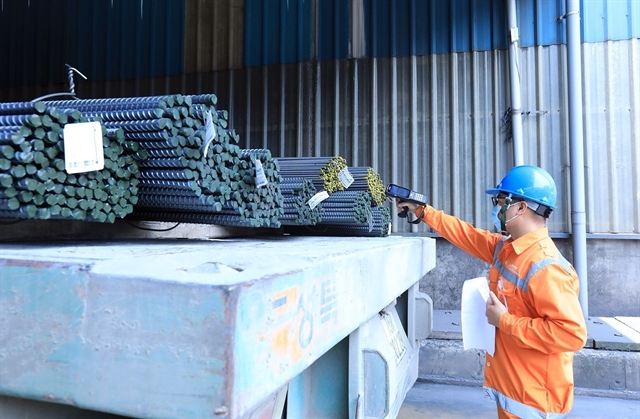 Economy
Economy

 |
| A worker of Hoà Phát Group checks steel products. The influx of imported steel into Việt Nam, mainly from China, is a matter of concern. — VNA/VNS Photo Tuấn Anh |
HÀ NỘI — The recent surge in steel influx into Việt Nam is a matter of concern that might weigh on domestic industry, local steel makers said, urging the creation of more technical barriers to be considered.
Statistics from the General Department of Customs showed that steel imports into Việt Nam totaled nearly 2.65 million tonnes in the first two months of 2024, nearly double the volume of the same period last year.
Notably, imports from China rose by three times in volume to 1.8 million tonnes in the two months, worth $1.1 million.
In 2023, Việt Nam imported a total of 13.33 million tonnes worth more than US$10.4 billion, posting a rise of 14.07 per cent in volume but a fall of 12.55 per cent in value over 2022.
According to Việt Nam Industry and Trade Information Centre, China is the largest steel exporter to Việt Nam with an increasing share from 43.64 per cent in 2022 to 62.18 per cent in 2023.
A representative from Việt Nam Steel Association (VSA) said Việt Nam can produce 23 million tonnes of crude steel (square and flat billets) and 38.6 million tonnes of finished steel products including construction steel, hot rolled, cold rolled, galvanized sheets and steel pipes.
The domestic production capacity meets the domestic demand, the association said, adding that steel products of Việt Nam also meet international standards and are exported to many countries around the world.
The influx of imported steel into Việt Nam is a matter of concern which might eat into the market shares of domestic steel makers especially while the existing technical barriers are not strong enough to protect the local industry, the association said.
In early March, some domestic steelmakers lowered their prices in an attempt to maintain market share.
VSA said that domestic steel plants are facing a lot of difficulty due to rising production costs, rising inventories and other financial costs as well as the competition from low-priced imported products.
Average steel import price from China dropped for the sixth month straight to $623 per tonne – the lowest price since January 2022.
Nguyễn Văn Sưa, an industry insider, said that China’s economic slowdown and frozen property market have resulted in weak demand for iron and steel products, forcing China which has a strong steel industry with a capacity of several million tonnes per day to increase exports to release inventories.
This is certainly weighing on Việt Nam, Sưa said, adding that the existing technical barriers of Việt Nam on imported steel products are not adequate and strong enough.
Previously, steel imports from China often accounted for below 50 per cent of Việt Nam’s total steel imports but now the proportion has increased to around 70 per cent.
A recent report by Rồng Việt Securities revealed that China’s steel export set a new high in 2017-23 period at 80 million tonnes per year, equivalent to that of 2014-15 when China increased exports due to overproduction.
Rồng Việt also warned about the pressure of the surge in steel imports from China in the domestic steel industry.
According to Nguyễn Việt Thắng, general director of Hoà Phát Group, the domestic steel industry is facing numerous risks in 2023, including the struggling Chinese economy.
“The pressure from China’s export is huge,” he said, adding that China exported more than 90 million tonnes of steel last year and the amount might reach 100 million tonnes this year.
"Many countries are erecting more technical barriers on steel products originating from China, such as the US."
Việt Nam must develop proper trade defence measures on steel products from China, Thắng said.
VSA’s statistics showed that Việt Nam initiated 10 investigations on imported steel products in the 2016-23 period, most on products originating from China. — VNS




